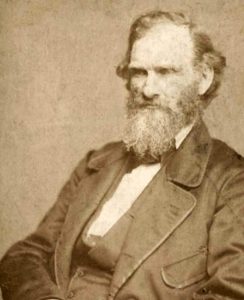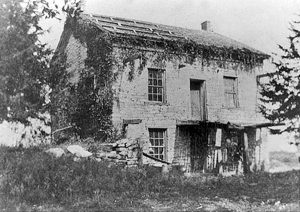Augustus Wattles was an ardent abolitionist and journalist during Kansas Territorial days.
Augustus Wattles was born to a Quaker family in Lebanon, Connecticut, on August 7, 1807. He attended the Oneida Institute in Whitestown, New York, and later entered the Lane Theological Seminary near Cincinnati, Ohio. There, he began organizing schools for African American boys and became very interested in the abolitionist cause. He traveled to New York to lecture on the subject, and he arranged to buy land in Ohio upon which to settle former slaves from Kentucky so that they could provide for themselves. This soon became a center for the Underground Railroad. At about this same time, he married Susan E. Lowe from Whitesborough, New York.
In 1855, soon after Kansas Territory opened for settlement, Wattles moved his family to Washington Creek in Douglas County. They came in response to the Kansas-Nebraska Act, which allowed territorial settlers to elect legislatures to determine whether the territory would enter the Union as a free or slave state. Wattles soon became a writer and Assistant Editor for the Herald of Freedom in Lawrence, Kansas, a candidate at the Big Springs Convention, and was elected to the Topeka Constitutional Convention in 1855.
In 1857, they moved to Linn County, Kansas, where Augustus and his brother, John O. Wattles, helped to found the town of Moneka. There, they became acquainted with John Brown. Though Wattles did not agree with Brown’s violent methods, he was a supporter, and Brown stayed at his home several times after the Marais des Cygnes massacre.
Wattles died in Mound City, Kansas, in 1876 at the age of 69.
© Kathy Weiser-Alexander/Legends of Kansas, updated April 2024.
Also See:


